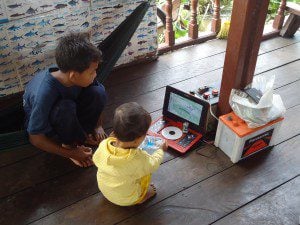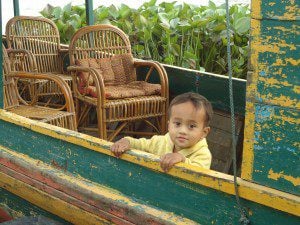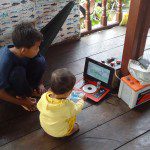 Every human person experiences reality through his or her senses. Each bundle of experiences is unique, cannot be duplicated, nor can it be shared. Even when an experience is lived along with another, each individual’s perception of the experience is unique.
Every human person experiences reality through his or her senses. Each bundle of experiences is unique, cannot be duplicated, nor can it be shared. Even when an experience is lived along with another, each individual’s perception of the experience is unique.
When we encounter a person, we never know where the person has been. We ignore the struggles, victories, joys and failures that influence the person’s viewpoints and choices. We will never know the whole story. While in high school, I read a story in Stephen Covey’s book Seven Habits of Highly Effective People that conveys this reality well and teaches that one should not jump to judgement when encountering another, precisely since we do not know the whole story.

A man was riding the subway home from work when a man with several children boarded the train. The children started yelling, jumping, and running, disturbing the silence of the travelers. The father of the children simply sat down, closed his eyes, and ignored the children. The man grew so upset and irritated at the father’s lack of concern for the children that he said in protest, “Sir, your children are bothering many here, could you control them better?” The man opened his eyes slowly and answered, “Well, I suppose none of us know how to act right now, we just left the hospital where their mother just died. Sorry for the disturbance.”
Covey describes this moment as a paradigm shift. The man had made a judgement, and by adding a crucial piece of information, his whole perception of the situation changed drastically. His ignorance regarding the man and children he encountered led to irritation, but by gaining one more piece of information, his irritation quickly transformed into compassion and love.

While in college, I was at Mass once in a very crowded university chapel. Seeing an older woman standing by the door, I got up from my pew and walked toward her to offer her my seat. As I turned to show the woman where she could sit, I saw a young man take my seat. I was furious! How could this fellow student take the seat when he could see several women standing? For months, every time I saw this student I would become upset again, evoking my harsh judgement on this man for his lack of courtesy. One day however as I walked across campus, this man was walking in front of me chatting with a friend. I overheard the conversation, “I have a condition in my leg muscles that prevents me from remaining standing for a prolonged period of time; I either have to be walking or sitting.” I experienced a paradigm shift. I had judged, and I had been terribly wrong.
When we encounter a new person, we are called to approach with love, sympathy and respect. We never know the whole story, and if we assume that we do, we are prone to become uncharitable, unfair, and to make a terrible mistake.
All pictures are mine, all rights reserved. I took these pictures at a floating village in Cambodia, about two hours from Siem Riep, 2014.












